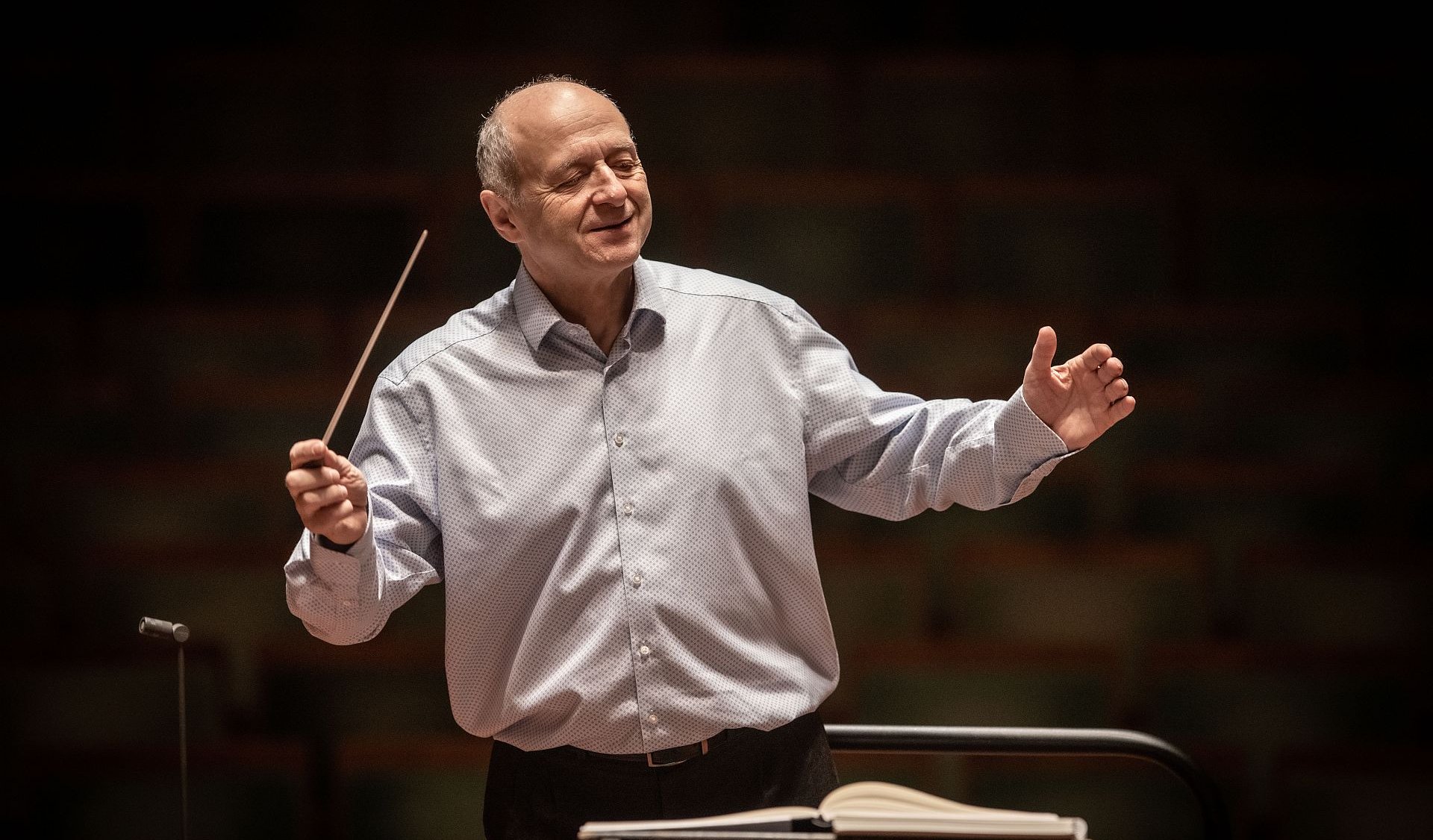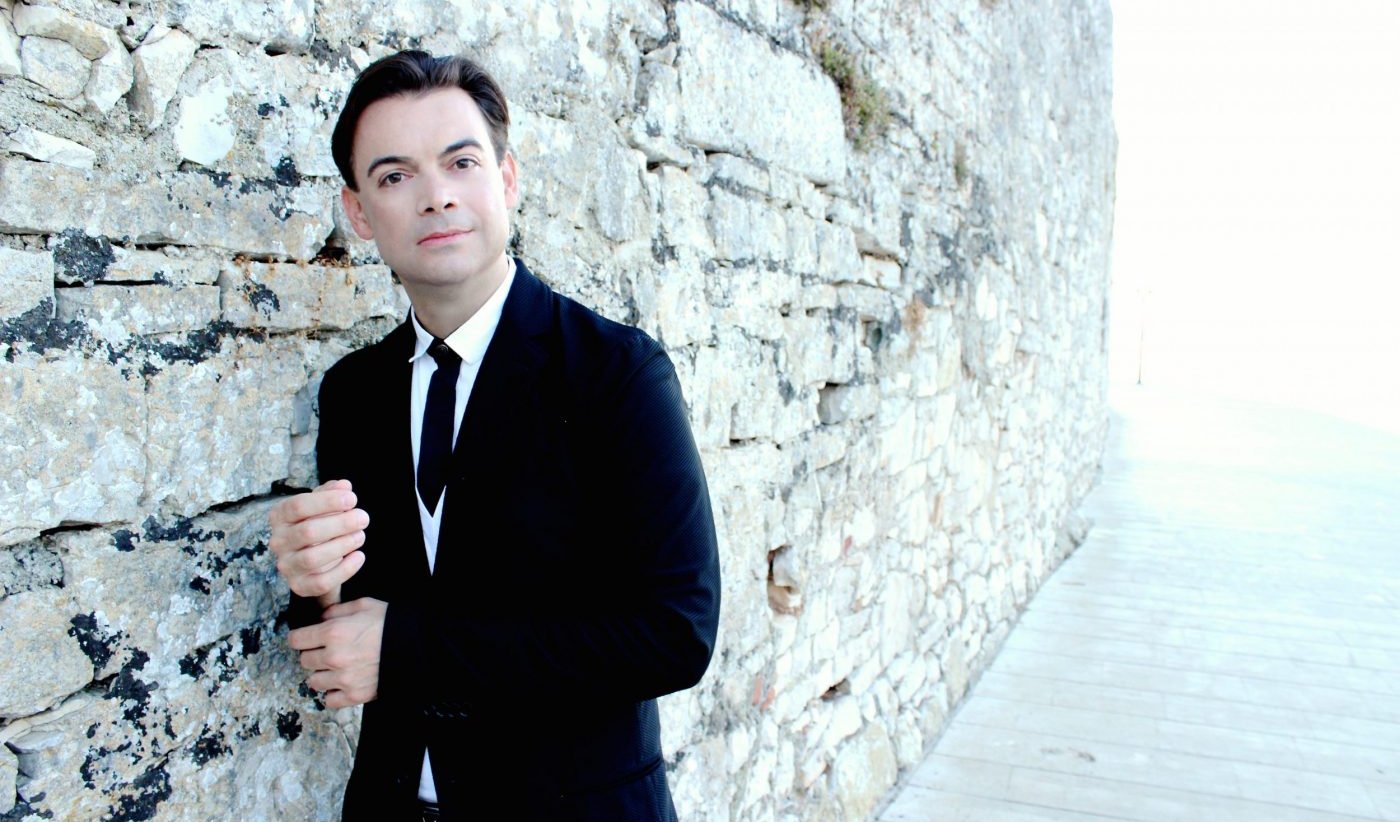

Bridging Europe: Liszt, Bartók
Lisztes, Lazić, Eva Duda Dance Company, Fischer
Program
Featuring
Other information
The event is about 2.5 hours long.
About the event
Bridging Europe with Liszt, Bartók, cimbalom, piano and pantomime. The most famous Hungarian rhapsody is not simply played in its orchestral version, but with the addition of the characteristic instrument of urban gypsy music that inspired Liszt. The cimbalom solo will be played by Jenő Lisztes, who has not only captivated audiences at Carnegie Hall, the Musikverein and the BBC Proms with the BFO, but has also worked with the legendary Hans Zimmer. Liszt’s increasingly richly orchestrated piano concerto, which has gone through four versions, will be performed with Croatian soloist Dejan Lazić, described by The Guardian as “a highly dynamic performer: his playing combines power and beauty”. After the interval, one of Bartók’s most beloved works, The Miraculous Mandarin, with a plot that explores questions of the body and soul, will be performed by the Éva Duda Dance Company.
In the mid-19th century, the demand for national music started cropping up throughout the world. After painstakingly collecting melodies he believed to be Hungarian folk music (mostly Hungarian songs from gypsy musicians) Franz Liszt composed a set of 19 Hungarian rhapsodies, his most popular series to date. Six of the works he composed for solo piano and dedicated to Count László Teleki were also arranged for orchestra. Like the rest of the rhapsodies, the C-sharp minor also follows the “csárdás” structure – the serious and dramatic “lassan” (slow) is followed by the virtuoso and energetic “friska”, a quick csárdás.
In the late 1840s Liszt retired from performing, and settled down in Weimar as a court conductor. His focus as a composer shifted to hitherto neglected symphonic genres. At the premiere of his Piano Concerto in A major in 1857, he only performed as a conductor, with the piano part played by one of his students. Though the piece sounds like one single movement, it can be divided into several sections. The sections are structured around a single, intimate and lyrical concept, bringing back the same theme with a different style and tempo in each section–finally, in the finale, as a fanfare of brasses.
“In a manor house, three outlaws force a young girl to seduce men whom they then rob”, begins Béla Bartók’s description of The Miraculous Mandarin. In Menyhért Lengyel’s nightmare tale, the outlaws cannot overcome the wealthy Chinaman who comes after two poor men and besieges the girl with his love. They strangle him, stab him with a sword, hang him, but to no avail. Finally, the girl fulfils the mandarin’s desire, and he drops dead. Bartók’s one-act opera failed at its premiere in Cologne in 1926, and the mayor banned further performances because of the openly depicted orgasm. Aside from the theme, the music is also progressive. Bartók breaks with classical tonality and uses dissonance as a means of expression. He puts the percussionists in the foreground, writes an unorthodox part for the wind instruments, and portrays the story with a wild, rhythmic, pulsating sound – at least musically. The spectacle is reinterpreted by the dancers of the Éva Duda Dance Company, known for its dynamic and daring choreography.
A joint event by the Müpa Budapest and the Budapest Festival Orchestra.
Did you know? The arrangement of Liszt’s rhapsody, composed in 1847, was completed between 1857 and 1860; his piano concerto premiered on January 7, 1857 at the court theater in Weimar, with Hans von Bronsart performing the solo and the composer himself conducting; The Miraculous Mandarin premiered on November 27, 1926 in Cologne, with Jenő Szenkár conducting; the Festival Orchestra performed Rhapsody No. 2 and Piano Concerto No. 2 most recently on June 4, 2022 in Brugge (soloists: Jenő Lisztes and Alexandre Kantorow, conductor: Iván Fischer), and The Miraculous Mandarin most recently on May 21, 2017 in Dortmund (conductor: Iván Fischer).
Contemporary events: the Polish composer Frédéric Chopin composed his Waltzes, Op. 64, in 1847 / in 1847, Wuthering Heights, the novel of English author Emily Brontë, was first published (under the pen name Ellis Bell) / in Hungary, the Opposition Party was established in 1847 with Lajos Batthyány elected as its first chairman / on March 8, 1857, women textile workers protested and marched in the streets of New York demanding more humane working conditions and higher wages (the anniversary of the protest is International Women’s Day) / Les Fleurs du Mal, the groundbreaking volume of French poet Charles Baudelaire, was published in 1857 / the Russian author Isaac Babel published his collection of short stories entitled Red Cavalry in 1926 / the German philosopher Max Scheler published his book entitled The Forms of Knowledge and Society in 1926 / Béla Czóbel painted his work Nude with Red Turban in 1926 / the opera Turandot, by the Italian composer Giacomo Puccini, premiered on April 25, 1926 at La Scala in Milan